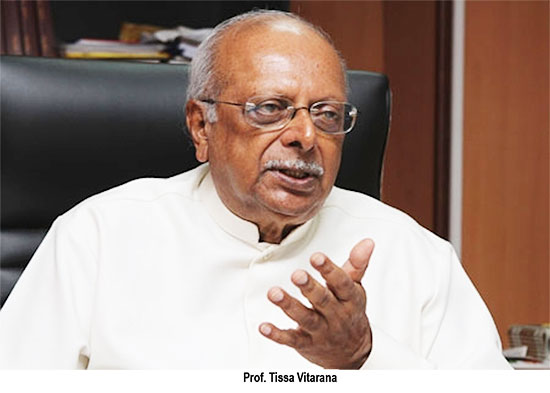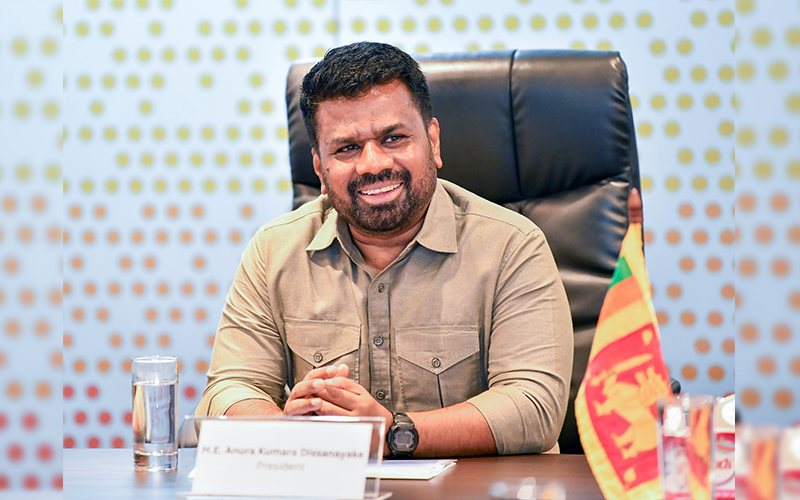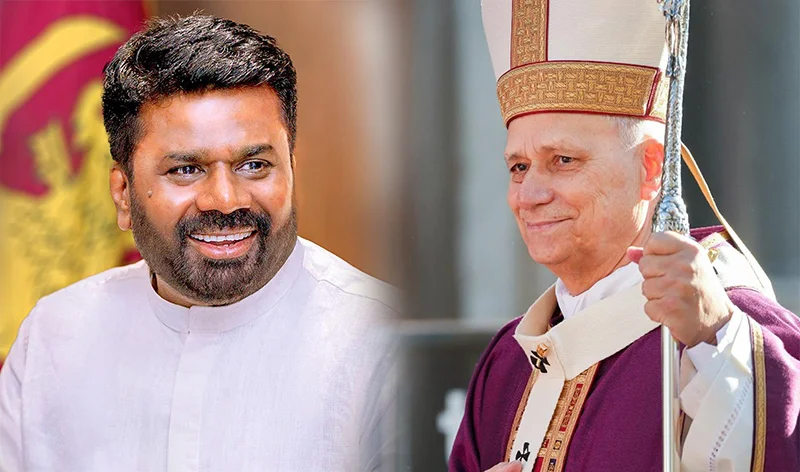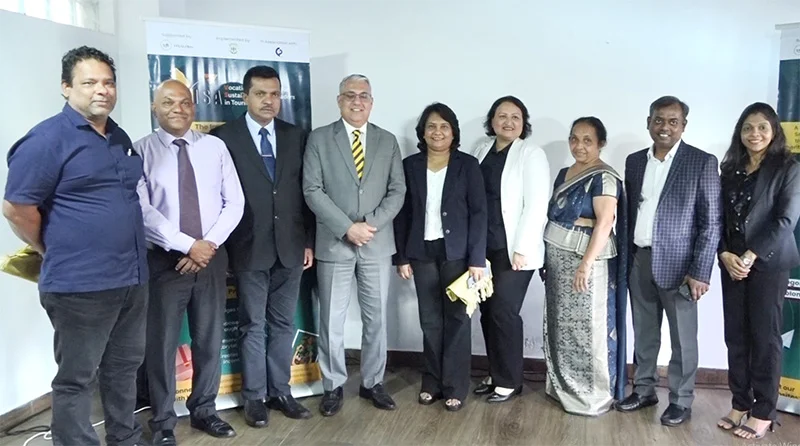News
Over 2,000 recommendations of parliamentary watchdog committees ignored

COPE and COPA toothless tigers?
by Saman Indrajith
More than 2,000 recommendations made by the parliamentary watchdog committees, COPE (Committee on Public Enterprises) and COPA (Committee on Public Accounts) with the objective of preventing corruption in public institutions have not been implemented by the relevant state agencies and officials, parliament sources told the Sunday Island.
Corrupt practices continued despite repeated warnings and recommendations by the two committees which uncover frauds after expending much effort and time, these sources said pointing out that among those institutions ignoring the implementation of recommendations were the Department of Inland Revenue, Customs Department, Excise Department, Education Ministry, Department of Wildlife Conservation and some local government bodies.
Sources alleged that some officials who had charges against them have deliberately kept away from committee sessions.
“It has been noticed that officials responsible for many instances of financial misappropriation find excuses such as leaving the country when they are summoned before the COPE or COPA,” a senior parliament official said.
Former Speaker Karu Jayasuriya in an attempt to promote transparency and accountability of the COPE and COPA opened previously closed door meetings to the media.
“The committees expose wrong doings of officials in public sector institutions and ministries and then the media reports them. COPE and COPA make recommendations to rectify the errors but the malpractices continue. There is no way for the Committees to compel the officials to act on their recommendations. So the committees have been often called toothless tigers,” the official said.
Incumbent COPE Chairman, Prof Charitha Herath, said that the situation could not be changed without amending Standing Orders of Parliament. “We expose massive losses and waste of public money. Yet we have no powers to compel the officials to implement our recommendations. For that purpose existing Standing Orders should be changed,” Prof Herath said.
Asked to comment, incumbent Chairman of COPA, Prof Tissa Vitarana said that this issue had been raised several times at COPA meetings. “Some officials have acted on recommendations while many have ignored them. When the officials do not rectify bad practices that would raise a question of accountability of state owned enterprises and other public sector institutions such as ministries.
“COPE and COPA are key committees that oversees state owned enterprises and examines the accounts relating to appropriation of the sums granted by Parliament to meet the public expenditure. Since there is continued non-compliance, at the last meeting I suggested seeking the opinion of the Attorney General to find whether the Auditor General could file legal action on behalf the COPA against the official who fail to comply by deadlines given to them by the committee.
“We intend to give a deadline of one or two months and if the officials continue to ignore the committee recommendations they could be taken before the courts under the proposal that I have made,” Vitarana said.
Parliament should amend Standing Orders to give more teeth to the COPE and COPA, he added.
News
AKD warns of far reaching economic consequences of Middle East war

President Anura Kumara Dissanayake yesterday called for an immediate and peaceful resolution of the escalating Middle East conflict, warning that the crisis could have far-reaching repercussions on the global economy, including Sri Lanka.
Addressing Parliament, the President stressed that no military conflict benefited humanity, particularly at a time when destructive military technologies were rapidly advancing.
“Any military conflict does not create a favourable situation for any group of people,” he said, urging all parties to make urgent commitments towards peace. “As Sri Lanka, our position is that all parties involved in this war must, as soon as possible, take steps toward a peaceful world.”
He cautioned that Sri Lanka could not remain insulated from the fallout from the conflict, noting that disruptions to global oil and gas supplies, threats to migrant workers in the Middle East, and potential shocks to tourism, remittances, shipping and aviation were real concerns.
A national programme was being formulated to mitigate the impact, he said, adding that its success would hinge on broader international efforts to restore stability, the President said.
Acknowledging public anxiety shaped by past economic hardships, President Dissanayake said social stability could not be ensured through rhetoric alone but required tangible guarantees that citizens would not face another crisis.
While noting that the government had successfully navigated multiple challenges since assuming office, he described the Middle East situation as distinct due to the uncertainty surrounding its duration and outcome.
The government, he said, was closely monitoring developments. The Central Bank had conducted a review with a report on the likely economic impact expected shortly. The Ministry of Finance is also preparing an assessment of the potential effects on public life, alongside measures to ensure the uninterrupted provision of essential services locally and for Sri Lankans overseas.
“The primary responsibility for finding a path out of the crisis rests with the Government,” he said, calling on Parliament and the public to collectively confront the challenge under a unified national plan.
Providing a detailed account of the country’s energy reserves, the President said storage capacity rather than supply remained the key constraint. Excluding the Indian Oil Corporation tanks in Trincomalee, total storage capacity at Kolonnawa and Muthurajawela stands at approximately 150,000 metric tons.
Diesel stocks were currently sufficient for 33 days, with refining contributing around 1,800 metric tons daily. Petrol reserves will last 27 days, with a 35,000 metric ton shipment due on March 7 or 8 expected to extend availability to around 40 days.
Aviation fuel stocks are adequate for 49 days, supported by both daily refining and imports. Scheduled shipments include vessels from RM Parks on March 14, Sinopec on March 17, IOC on March 21 and the Ceylon Petroleum Corporation on March 28.
Crude oil supplies were sufficient to operate the refinery for 26 days, with an additional shipment expected to extend operations by a further 18 days, the President said.
“Because of this, there is no crisis regarding oil,” the President assured Parliament.
News
Pope invited to visit Sri Lanka

President Anura Kumara Dissanayake has invited His Holiness Pope Leo XIV to visit Sri Lanka.
The official invitation was handed over by Minister Bimal Ratnayaka to the Vatican’s Under Secretary for Relations with the States, at the Vatican, yesterday, during the Minister’s official visit to Italy, the President’s Media Division said.
News
New Tourism Act to strengthen legal action against visa violators

The government is in the process of drafting a new Tourism Act to address legal loopholes that currently prevent the prosecution of foreign nationals who engage in unauthorised activities while on tourist visas. Speaking at a certificate awarding ceremony for the Vocational Initiative for Sustainable Ambassadors in Tourism (VISA) project at the Royal Kandyan Hotel, Suranjith Wavita, a member of the Presidential Task Force for Tourism Development, stated that the current Tourism Act No. 38 of 2005 was flawed as it does not prescribe specific punishments, beyond deportation, for such offenders.
Wavita highlighted that a significant number of foreigners, including Chinese nationals, had been deported over the past three months for working as illegal tour guides and engaging in various trading activities. He explained that due to a shortage of Chinese-speaking local guides, travel agents often brought in “Tour Leaders” from abroad on tourist visas, which was a serious violation. The proposed new legislation aimed to empower the Tourist Police Division to arrest and produce such violators, ensuring stricter enforcement than mere deportation.
The new Act is being formulated by a committee of experts, based on various proposals and ideas to make it mandatory for anyone involved in the tourism industry to be registered and properly trained. To facilitate this, the government has already lowered the basic qualifications required for registration, allowing more locals to enter the profession legally and prevent the negative impact of unauthorised operators on the industry’s future.
Discussing the industry’s growth, Wavita noted that Sri Lanka was now aiming for an annual target of three million foreign tourists. He specifically mentioned the success of the 311-km “Pekoe Trail” in the central highlands, which attracts around 500 tourists daily and helps channel tourism income into plantation-based communities.
He also emphasised the importance of environmental protection, noting that since 25% of Sri Lanka’s flora is endemic, some foreigners enter the country with the intention of “biopiracy,” making the role of trained local guides crucial in safeguarding natural resources.
The VISA training project was implemented by the National Cleaner Production Centre (NCPC) and ASSIST, with the support of VFS Global. The event saw the participation of high-ranking officials, including Manpreet Singh Aurora (Senior General Manager, VFS Global), H.C.P. Jayaweera (Director General of National Botanical Gardens), and Samantha Kumarasena (CEO, NCPC).
Wavita concluded by praising the increasing participation of women in the tourism sector, describing it as a vital contribution to both the industry’s progress and the national economy.
By S.K. Samaranayake
-

 Opinion5 days ago
Opinion5 days agoJamming and re-setting the world: What is the role of Donald Trump?
-

 Features5 days ago
Features5 days agoAn innocent bystander or a passive onlooker?
-

 Features2 days ago
Features2 days agoBrilliant Navy officer no more
-

 Features6 days ago
Features6 days agoRatmalana Airport: The Truth, The Whole Truth, And Nothing But The Truth
-

 Opinion2 days ago
Opinion2 days agoSri Lanka – world’s worst facilities for cricket fans
-

 Business6 days ago
Business6 days agoIRCSL transforms Sri Lanka’s insurance industry with first-ever Centralized Insurance Data Repository
-

 Business5 days ago
Business5 days agoAn efficacious strategy to boost exports of Sri Lanka in medium term
-

 Features3 days ago
Features3 days agoOverseas visits to drum up foreign assistance for Sri Lanka













